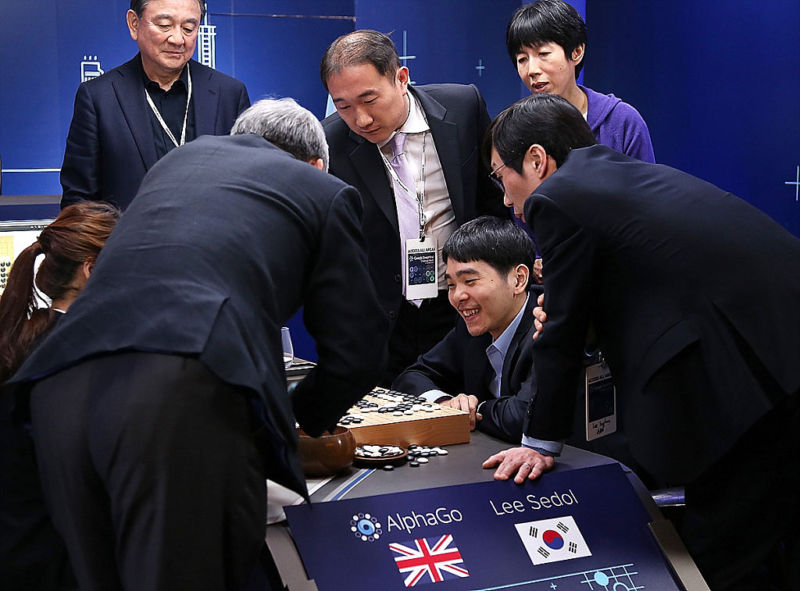
DeepMind's AlphaGo is back, and it's been secretly crushing the world's best Go players over the past couple of weeks. The new version of the AI has played 51 games online and won 50 of them, including a victory against Ke Jie, currently the world's best human Go player. Amusingly, the 51st game wasn't even a loss; it was drawn after the Internet connection dropped out.
Developed by London-based DeepMind, AlphaGo was thrust into the limelight in March 2016 when it beat Lee Sedol, one of the world's top Go players, in a real-world match in South Korea. Before the match, Lee was confident that he could beat the artificial intelligence. But after losing four out of five games, Lee said, "I've never been congratulated so much just because I won one game."
Following its single game loss, DeepMind has been hard at work on a new and improved version of AlphaGo—and it appears the AI is back bigger, better, and more undefeated than ever. DeepMind's co-founder Demis Hassabis announced on Twitter yesterday that "the new version of AlphaGo" had been playing "some unofficial online games" on the Tygem and FoxGo servers under the names Magister (P) and Master (P). It played 51 games in total against some of the world's best players, including Ke Jie, Gu Li, and Lee Sedol—and didn't lose a single one.
That isn't to say that AlphaGo's unofficial games went unnoticed, though. Over the last week, a number of forum threads have popped up to discuss this mystery debutante who has been thrashing the world's best players. Given its unbeaten record and some very "non-human" moves, most onlookers were certain that Master and Magister were being played by an AI—they just weren't certain if it was AlphaGo, or perhaps another AI out of China or Japan.
It is somewhat unclear, but it seems that DeepMind didn't warn the opponents that they were playing against AlphaGo. Perhaps they were told after their games had concluded, though. Ali Jabarin, a professional Go player, apparently bumped into Ke Jie after he'd been beaten by the AI: "He [was] a bit shocked... just repeating 'it's too strong.'"
Gu Li, as quoted by Hassabis, was a lot more philosophical about his loss to the new version of AlphaGo: "Together, humans and AI will soon uncover the deeper mysteries of Go." Gu Li is referring to the fact that AlphaGo plays Go quite differently from humans, placing stones that completely confound human players at first—but upon further analysis these strategies become a "divine move." While there's almost no chance that a human will ever beat AlphaGo again, human players can still learn a lot about the game itself by watching the AI play.
If you want to watch the new AlphaGo in action, a German website has the first 41 games from the 51-game streak, including victories against many of the world's best human players. At this point it isn't clear how this new version of AlphaGo differs from the one we saw last year, though some Go observers suggest that this version is making more "non-human" moves than before, indicating that the deep neural network might've been trained in a different way.
reader comments
129